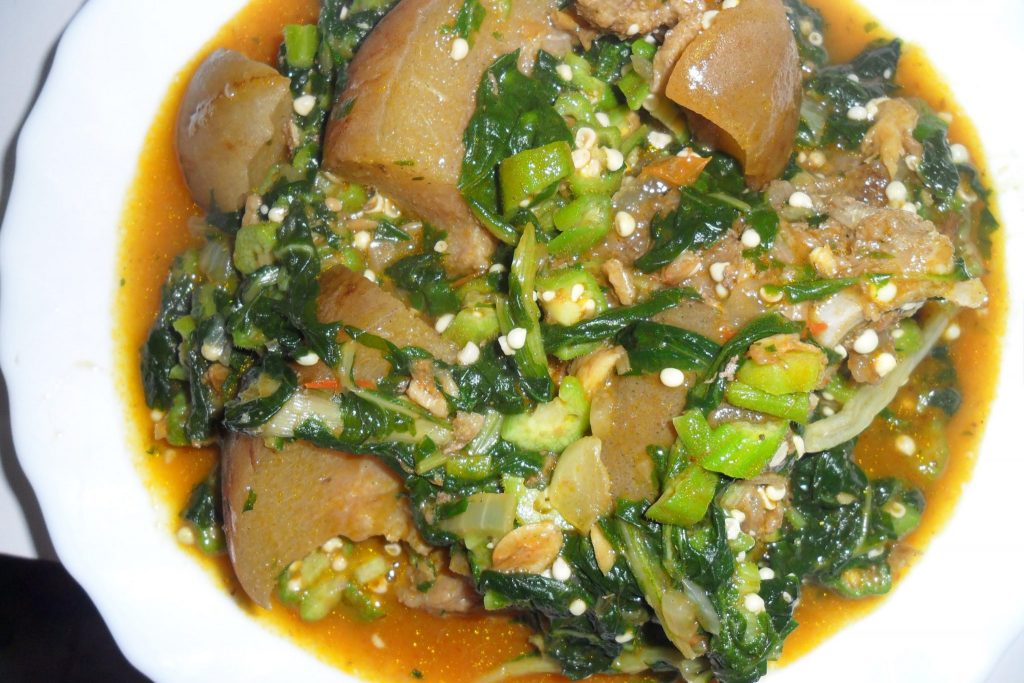
Ladies if You Need Twins!!! Check out 6 African foods believed to increase chances of having twins
Published on July 7, 2021 at 11:23 AM by Face of Malawi
In many African societies, African foods are respected whilst having large numbers of children tend to be a struggle. Nevertheless, the arrival of twins is often received with so much joy by families who regard it as a blessing. Twins, the birth of two offspring from the same pregnancy, is a relatively uncommon phenomenon, and, as such, twins are often regarded as special.
Worldwide, the birth rate of twins varies by region and country. Latin America and Southeast Asia have the lowest rates, with only about 9 sets of twins per every 1,000 births. In Europe, the figure is about 16 twins for every 1,000 births, and in the United States, it is about 33 for every 1,000 births.
In Yorubaland, one town, in particular, appears to take the prize for the highest number of multiple births in the world. Igbo Ora, an agrarian town 80 kilometres from Lagos, is easily the twin capital of the world: unconfirmed estimates from the town say it boasts a mind-blowing 158 sets of twins for every 1,000 live births. This tends to prove accounts that African women have a higher chance of giving birth to twins in comparison to others.
Generally, twins run in families, implying that the chance of having them is partly determined by one’s genes, though older women also bear more twins.
In recent years, it has been disclosed that one’s diet may also play a role in having twins. The following are various African foods that you should eat if you want to get pregnant with twins:
In central Africa, that number rises to around 18 to 30 sets of twins for every 1,000 births. However, the Yoruba people of southwest Nigeria boast the highest number of twin births in the world, with about 50 sets of twins for every 1,000 live births.

Okra leaves
Years ago when it was revealed that the town of Igbo-Ora, Oyo State, Nigeria was the twin capital of the world, the locals disclosed one of the secrets of their multiple births – okra leaves. The indigenes said that a kind of okra leaves, locally known as ewe ilasa, is capable of making women who use it in their diet give birth to twins. In a 2013 interview, a community leader said, “We eat a lot of the okra leaf or Ilasa soup.”
“There is no man or woman in this town who does not know how to eat okra soup. We cook the leaves called ewe ilasa (ilasa leaves) more of which we consume than any other soup,” another native said.

Yam
Health experts say yams do stimulate one’s ovaries, thus, increasing chances of multiple births. Around Yorubaland, fertility experts say a possible explanation for the high incidence of multiple births in the area could lie in the consumption of a specific type of yam containing a natural phytoestrogen, which is thought to stimulate a woman’s ovaries to release eggs from each side. In Igbo-Ora, the diet of locals is rich in yams and this has contributed to a twin birth rate four times higher than the global average.

Cassava
During ovulation, most women release one egg and twins are possible if the egg splits into two after fertilization or if two separate eggs get fertilized. Some studies have shown that eating cassava, a plant with a tuber root, may help a woman release more than an egg during ovulation, leading to more babies. However, the twins may not be identical but fraternal as two eggs get fertilized. The diet of the Yoruba people is also rich in cassava, and research into their multiple births carried out at the University Teaching Hospital in Lagos has suggested that a high level of a chemical found in the Yoruba women and the peelings of the tuber could account for the high level of multiple births.
“These substances are usually linked to the release of more than one egg, which usually leads to twin pregnancies. That means that there is possibly an environmental factor that encourages the high level of this chemical substance,” a consultant gynaecologist at the hospital explained.

Pineapples
Yams and cassava may not be your thing. Luckily, vegetables and fruits, particularly, pineapples, can give you twins. Women who would like to welcome two bundles of joy are being urged to include the core of the pineapple fruit in their diet. The presence of bromelain, which is a type of protein in pineapples helps with ovulation and fertilization. #African foods.

Beans and grains
Eating a lot of beans and grains can increase your chances of having twin babies because such foods are a great source of complex carbohydrates. Complex carbohydrates are fibre-rich and lower in sugar than their counterparts, simple carbohydrates. A diet rich in complex carbohydrates do not only prevent birth defects in babies but are alternatives to a woman who would want to have twins, according to experts. #African foods

Milk
Consuming milk and other dairy products could increase a woman’s chance of having twins, health experts say. A recent study in the Journal of Reproductive Medicine found that women who consumed more dairy and dairy derivatives are five times more likely to have twin babies in comparison to women who drink lesser milk or consume lesser dairy products. The study also suggested that animal-product foodstuffs, particularly, dairy foods could boost the production of a protein called insulin-like growth factor (IGF) in women. This could promote the release of eggs by the ovary. In other words, when one consumes more milk, their ovaries may release more eggs, so that two are more likely to be fertilized at the same time. The protein called insulin-like growth factor is found in cow’s milk and can also be obtained from other animal products. #African foods
Subscribe to our Youtube Channel:

